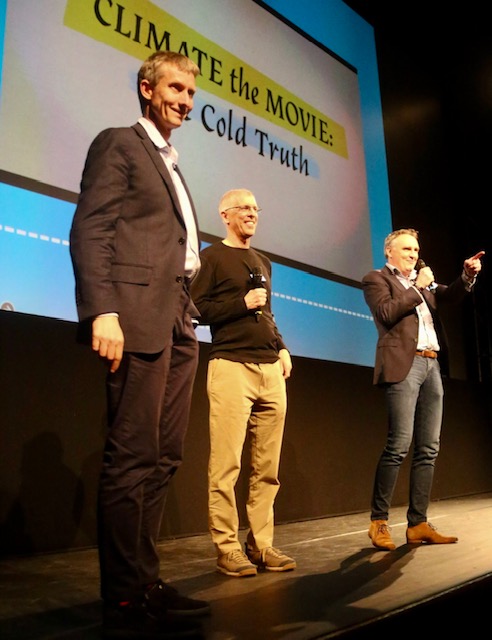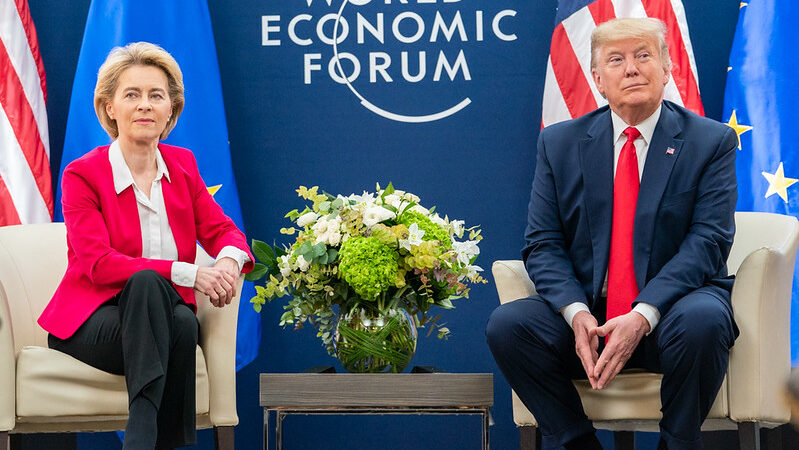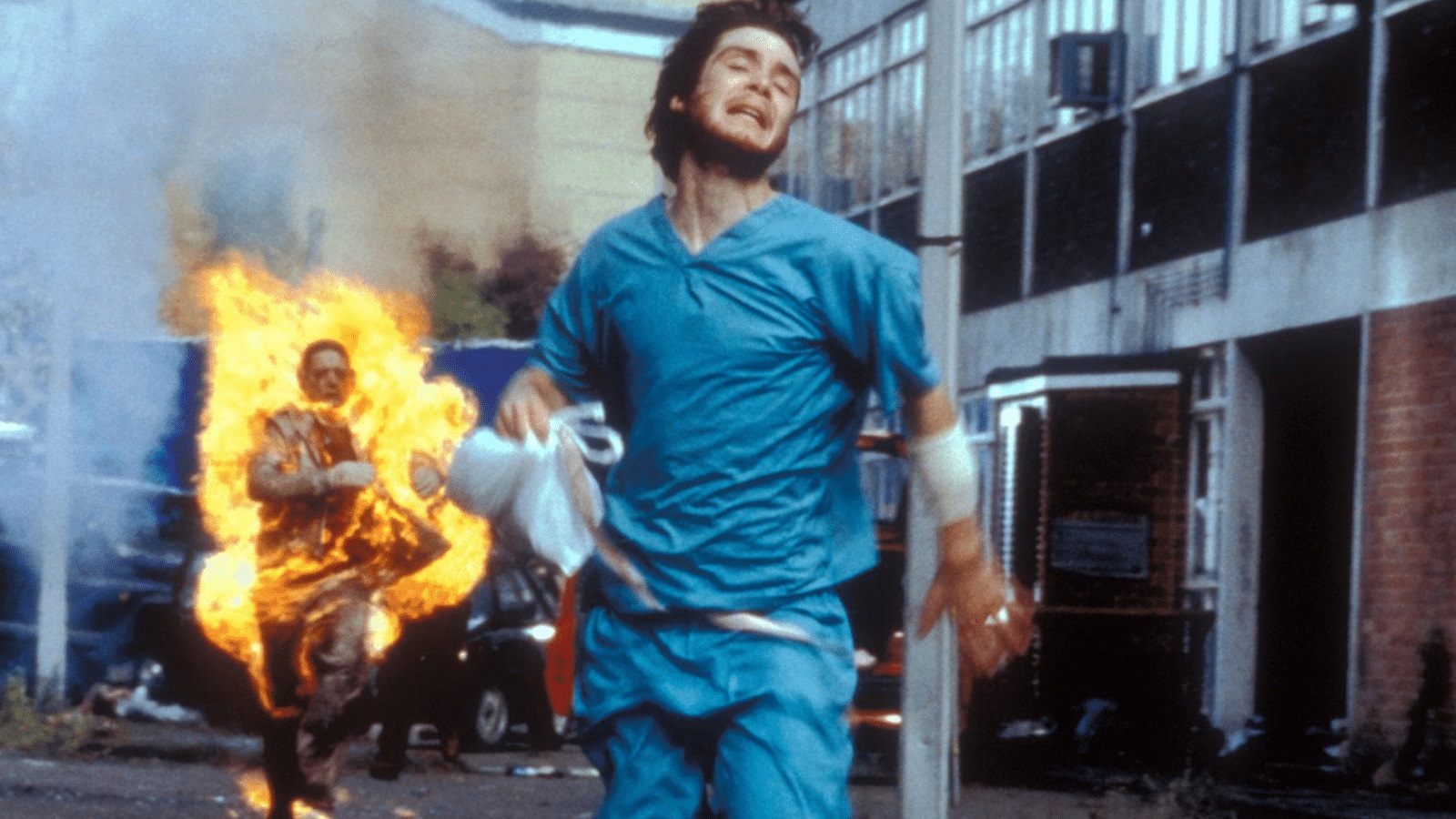
Climate: The Movie (The Cold Truth) is a thought-provoking film that challenges the exaggerated political climate discourse that has dominated the mainstream media for the past three decades. It provides a comprehensive factual overview and questions the notion of a man-made climate emergency. In an exclusive interview with The Liberum, the film’s producer, Tom Nelson, gives a look behind the scenes: “There’s no evidence anywhere that there's any climate crisis”.
By Arthur Blok
Nelson got introduced to the topic by chance. He started a podcast in July 2022, and one of his first guests was the British film director Martin Durkin after being impressed by his 2007 movie, The Great Global Warming Swindle.
"I was curious about how he made it, and then, out of the blue, he said: if I had the chance to remake that movie now, knowing what I know and having more time, I think I could produce an even better movie. That kicked the whole thing off”, said Nelson.
With a rich career directing numerous movies and TV productions, Durkin is a highly respected figure in the industry. Nelson attributes the recent success of Climate the Movie to Durkin and his hard work: "He conducted the interviews, wrote the script, and provided the narration. It was a true team effort, for which he deserves most of the credits."
Nelson managed to secure funds from private financiers. The film was not a high-budget production; Nelson explained that every penny was spent wisely. Except for some travel costs, most participants worked on a volunteer basis. None of the individuals featured in the film received any payment. This grassroots approach underscores the passion and dedication behind the project.
Despite its modest budget, the film is captivating from the first moment as it delivers a powerful message. It features a diverse range of voices, including prominent scientists, physicists, climatologists, and even Patrick Moore, the founder of Greenpeace, who challenge the prevailing consensus that the science of climate change is settled. Nelson: “Which, of course, is not the case; a lot of peer-reviewed research is deliberately ignored.”
This balanced approach invites viewers to question the mainstream narrative that the ‘science is settled’. After watching the movie, there is little room for blind acceptance of political doom and gloom climate rhetoric or institutional claims.
In addition, the provided data is straightforward and easy to understand. It examines four reliable temperature change measurements, including rural surface stations, ocean gauges, satellite readings, and atmospheric balloons. It argues that the Intergovernmental Panel on Climate Change (IPCC) reports and models are primarily based on sites affected by urbanisation, leading to distortions in the record due to the so-called urban heat island effect.
Nelson: "You can explore any rabbit holes regarding cyclones, floods, fires, or whatever you want to do. There's no evidence anywhere that there's any climate crisis. You don't have to be a climate scientist. You can check this for yourself. None of the scare stories match with reality. It is easy to debunk the whole climate crisis narrative."
The film's findings, which show only a slight temperature rise, are supported by long-term historical records dating back centuries and tree ring and ice core testing spanning millennia. This suggests that periods of warmer climates have occurred in the past without industrial influence. Nelson emphasises that we are at a turning point. The spread of fake climate news has reached its peak.
Clintel
Earlier this year, The Liberum published an interview with Dr Guus Berkhout, the founder of Climate Intelligence (Clintel), a global climate change and policy foundation. Berkhout elaborated in the interview that there is “much more to climate change than reported in the past decades.” Berkhout also has a bone to pick with the IPCC. He described their climate reports as “embarrassingly one-sided, for which citizens pay the price.”
In a follow-up article, the Dutch emeritus professor illustrated that the IPCC ignores crucial peer-reviewed literature and cherry-picks evidence to promote doom scenarios on climate change. In addition, the IPCC refused three written requests for dialogue. That by itself should raise everyone’s eyebrows.
Why is the IPCC afraid to engage in conversation with honest climate experts?
The movie premiere
In the past months, Nelson has attended three premieres: in London, Washington, DC, and in the Netherlands. The latter was organized with the support of Clintel. "The movie was met with a wave of positivity, particularly from those who were already fans of Durkin and shared his scepticism about the climate change narrative. This initial positive response was further amplified when the movie was released online, reaching millions of viewers”, said Nelson.

Interestingly, the large mainstream media outlets have ignored it, but remarkably, the usual attacks on its content have never happened. Nelson: "Not even from large mediums such as the Washington Post or the New York Times. They have been completely silent. Probably, they think that by ignoring us, it might go away. But it will not."
Nelson continued: "So many people have come up to me with a story about how they believed what the media told them, and they did not pay attention until COVID hit. Then they discovered that governments and the World Health Organisation repeatedly lied to us about many things. The same goes for me; after the 'pandemic', I started looking around and asked myself, 'What else are they lying to us about?' So many people have gone through that in their version."
The American producer thinks it's healthy for people to ask those questions and not to trust stories anymore blindly. Nelson: “The tide has turned; many people are now thinking for themselves. It's encouraging. Look what is happening around the world. What and who can you still trust?”
Climate: The Movie discusses many current media myths and obsessions. It debunks them, including the lack of an increase in hurricanes and storms, the myth of hotter daily temperatures in the 1930s than recently, and proves that there are significantly fewer modern forest fires than in the '20s and '30s.
The film dramatically outlines how prominent scientists, environmentalists, politicians, and the media exaggerate and distort the truth to manipulate the masses into accepting all the lifestyle constraints and escalating costs of enforcing net zero. That makes it an essential contribution to the far-from-settled climate science debate.
The full movie can be watched for free on Clintel's YouTube channel. Subtitles are available in various languages.





